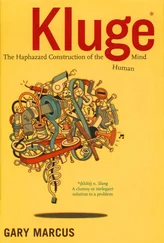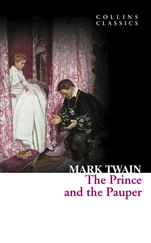What we learned from the Manson interview was later applied to the bureau’s dealing with other cults with charismatic and manipulative leaders, such as Reverend Jim Jones’s Peoples Temple in Guyana, David Koresh and the Branch Davidians in Waco, Texas, and the Freemen militia movement in Montana. The outcome is not always as we would like it, but it is important to understand the personality of those we are dealing with so we can try to predict behavior.
I had also learned from experience with assassin types like Arthur Bremer and James Earl Ray not to stare for long since it made them too uncomfortable to open up. From Bremer we learned that the target was not nearly so important as the act. Bremer had pursued President Richard Nixon before concluding that he would be too difficult to get close to and then switched his sights to Alabama governor and presidential candidate George Wallace, whom he shot and rendered paraplegic during a campaign stop at a shopping center in Laurel, Maryland, on May 15, 1972. From Ray, we got very little. He was so bound up in his paranoid fantasies that he had recanted his guilty plea in the assassination of Dr. Martin Luther King Jr., insisting that he was an unwitting dupe of a complex conspiracy to kill the civil rights icon.
Let’s be honest: Any prison interview of this type begins as a mutual seduction. I am there to seduce the convict into believing that my sole purpose in being there is to help him get out. And he is there to seduce me into believing that he is worthy of getting out. It usually takes a fair amount of time to get beyond those opening positions as the pretense is gradually stripped away to reveal who we each are. My part in this case was to come across as if I was helping him think about and prepare for the big day when he would be paroled. This was not insincere on my part. I had to go into this session with a completely open mind, and with the goal to turn on the switch in his brain that would reveal his inner thoughts and fantasies.
The first two hours were devoted primarily to small talk. This amount of time is necessary to establish a natural conversational rhythm and to ensure that the subject forgets the setting and lowers his inhibitions. I told him some vague things about myself and my own background in law enforcement to build up a level of trust. I asked him about the prison environment, inquiring about what he did with his time. It was interesting to me that he pretty much kept to his own wing in the prison and seldom ventured out into the main yard, where he said he didn’t feel comfortable. This was analogous to his pre-prison life, in which he felt a greater comfort level in school, where he was in control, as opposed to in the greater community, where he was socially awkward and more vulnerable.
Years later, I got to see a copy of a letter he’d written to a woman with whom he corresponded regularly. He mentioned the fact that I did not take notes, that I had the details of his file memorized, and that I was good at putting him at ease. My purpose was to steer the conversation where I wanted it to go. He “complimented” me in his letter on listening to what he had to say, rather than merely going through a list of predetermined questions, as parole board representatives tended to do. He was right about that. I was here to learn from him by listening and getting him to reveal himself. That was my only agenda.
Gradually, I began bringing him around to the crime itself. I stayed away from sounding the least bit judgmental. It was not as if I was trying to give him the impression I was condoning his actions. I just wanted to be as factual and objective as I could, so we could re-create his thought processes at the time. He had given so many different responses to psychiatrists, psychologists, and counselors over the years that I wanted to see if I could just get him to give me the story unadorned.
I did this by creating a This Is Your Life–style narrative. For those too young to remember this, it was a television program during my youth in the 1950s in which host Ralph Edwards would “lure” a prominent guest into the studio with the aid of the guest’s family or friends and go through his or her life for the audience, punctuated by reminiscences of people from his past. I got McGowan to tell me about himself as I guided him up to that Thursday afternoon in 1973.
I knew that he had a reputation in school for being kind of humorless and aloof, at least among the faculty. I also knew that he had been engaged to be married around this time, but that the engagement had fallen through. If the woman had rejected him, that could certainly be a precipitating stressor.
Though he said McGowan wasn’t very emotionally forthcoming, Bob Carrillo had the impression that “he had a lot of emotion built up inside.” He never mentioned the breakup of the engagement and Carrillo said he had never met the young lady.
“I met his girlfriend on one occasion,” said Jack Meschino. “My god, she was the sweetest, most beautiful thing. She was very tiny compared to him.” And perhaps a threat to his mother? Though Meschino knew at the time there had been a breakup, he never knew why, and McGowan never brought it up.
Some of his fellow teachers had planned a trip to the Caribbean over the Easter break, but McGowan had not been invited.
I asked Meschino what would have happened if Joe had asked to go along. He indicated that he probably would have been included.
Then why didn’t he? Meschino said that he couldn’t get himself organized and figure out how to make all of the arrangements. That was pretty consistent with a guy of his age who still lived with his mother and grandmother, and it certainly could have contributed to the ongoing frustration of the life he found himself living.
It was about two hours into the interview when I said, “I want to know in your own words what it was like twenty-five years ago. How did this all happen to get you here?” I purposely avoid loaded or descriptive words like kill, assault, or murder, nor did I refer to Joan as his “victim” or a child. “That girl—Joan—did you know her?”
“Well, I’d seen her in the neighborhood,” McGowan replied. His affect was flat, his tone matter-of-fact.
“Had she come to the door to sell you the Girl Scout cookies?”
He said he thought his mother had ordered them from her. A newspaper article quoting a former FBI agent said they found more than a hundred empty boxes of Girl Scout cookies in the house.
“Let’s go back to the moment she came to the door,” I said. “Tell me what happened, step by step, from that point on.”
It was almost like a metamorphosis. McGowan’s whole demeanor transformed. Even his physical appearance seemed to change before my eyes. His eyes were unfocused as he looked beyond me and stared toward the vacant cinder-block wall. I could tell he was looking completely inward—back a quarter of a century. I could sense he was clicking back to the one story that had never left his mind.
The front door was open to the mild spring weather, and from the lower level of the bi-level home, McGowan said he saw her through the screen door standing on the landing. She said she was there to deliver two boxes of Girl Scout cookies and to collect two dollars. He wanted to get her downstairs to the level where he lived, away from his grandmother, who was either sleeping or watching television upstairs.
That was why he said he had only a twenty-dollar bill and a one-dollar bill and would have to go get the proper change—to get her downstairs with him. The story about being embarrassed over not having the exact amount was all crap to give something innocuous to the psychiatrists.
This is what I was hoping would happen during the interview. I’ve had similar experiences with other sex offenders: Once you’re able to flip their on switch, they don’t shut up. When Ressler and I interviewed Monte Rissell, he recounted driving back to the parking lot of his apartment complex in Alexandria, Virginia, seeing a woman about to get out of her car, and forcing her at gunpoint into a secluded area. After that, she tried to run away. He pursued her into a ravine, grabbed her, and vividly described banging her head against the side of a rock and holding her head under the flowing water of a stream, as if he were watching a movie.
Читать дальше












